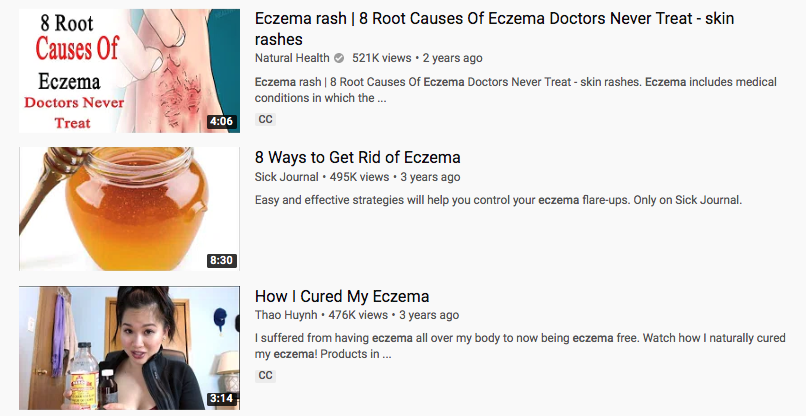One in three eczema-related YouTube videos are potentially harmful, according to European researchers.
A review of the quality of information of the 100 most widely-viewed videos on eczema posted on the video channel found that 46% of them were misleading, and 36% were found to disseminate content potentially dangerous to eczema patients.
The findings, presented at the British Association of Dermatologists’ Annual Meeting in Liverpool, were based on a review of the eczema videos that had a total of 8.5 million views.
 Led by Dr Simon Mueller, a dermatologist at University Hospital Basel, Switzerland, the reviewers found that patients with eczema were not only encouraged to pursue unnecessary diets such as avoidance of dairy or gluten, but also to use harmful topical treatments and home-based phototherapies without any detailed information about the duration of the application and potential risks.
Led by Dr Simon Mueller, a dermatologist at University Hospital Basel, Switzerland, the reviewers found that patients with eczema were not only encouraged to pursue unnecessary diets such as avoidance of dairy or gluten, but also to use harmful topical treatments and home-based phototherapies without any detailed information about the duration of the application and potential risks.
Furthermore, conventional medicine and physician’s advice were discredited in various ways, while promising a “fast and easy cure”.
The study investigators assessed the quality of the videos using the Global Quality Scale (GQS) and the DISCERN instrument. These assessment tools showed that around two thirds of the videos were of poor or very poor scientific quality. The viewers’ ratings did not correlate with the results of the GQS and DISCERN analysis indicating that the viewers were not able to recognise good and poor quality of the videos.
Healthcare institutions and universities accounted for just 21% and 8% cent of the Youtube eczema videos, respectively, with private individuals and promotors of complementary and alternative treatments having posted 50% of the videos analysed.
“We hope that our research will make people think twice about the medical information they get from social media,” said Dr Mueller.
“The internet is a powerful and often helpful research tool, but where you source your information from is important. We do not advise against this kind of lay research, but we clearly advise against decision making based on YouTube videos only. We rather encourage to discuss the content of the videos with a doctor of trust to avoid adverse outcomes.”
Holly Barber of the British Association of Dermatologists, said the study highlighted that the number of views and likes a video has does not necessarily match up with the quality and accuracy of information presented.
“It’s really important that individuals and organisations are responsible about the information they share on social media. For members of the public looking for information, be sceptical of extraordinary claims made without evidence, and make use of reputable bodies such as the National Eczema Society, the NHS, or the British Association of Dermatologists.”